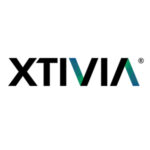If you’re evaluating IBM Db2 for your next project, understanding its strengths and limitations is essential. In this post, Virtual DBA powered by XTIVIA breaks down the key advantages and disadvantages of using Db2 as a relational database management system (RDBMS). Learn when Db2 is the right fit – and when a different database might serve you better.
Advantages of Db2
Db2 is a relational database management system (RDBMS) developed by IBM that offers robust features and capabilities for managing large volumes of structured data. Some of it advantages include:
- Scalability: Db2 is designed to handle large amounts of data, making it suitable for projects that require high scalability and performance.
- Security: Db2 offers numerous security features, such as encryption, access controls, auditing, and monitoring, making it ideal for projects requiring high data protection levels.
- Compatibility: Db2 is compatible with various operating systems, programming languages, and platforms, allowing developers to integrate it with other software and tools.
- Flexibility: Db2 offers numerous options for data storage, including in-memory, disk-based, and cloud-based storage, allowing businesses to choose the best option for their specific needs.
- High Availability: Db2 includes features such as automatic failover and recovery, ensuring high availability and minimizing downtime.
Disadvantages of Db2
However, not every tool fits every project. Companies should consider the potential disadvantages of using Db2 as well, including:
- Cost: Db2 can be costly to implement and maintain, making it less suitable for small businesses or projects with limited budgets.
- Complexity: Db2 is a complex database management system that requires specialized expertise to implement and manage effectively.
- Performance: Db2 may have slower response times than other databases when handling certain queries.
- Maintenance: Db2 requires regular maintenance and updates to ensure optimal performance and security, which can be time-consuming and costly.
Db2 Suitability for Specific Projects
Whether Db2 suits a specific project depends on factors such as requirements, budget, and resources. For projects that require high scalability, security, and compatibility, Db2 may be an excellent option. However, due to its high cost and complexity, Db2 may not be the best choice for projects with limited budgets or resources.
Alternatives for Db2
Businesses can consider several alternatives to Db2, depending on their specific needs and requirements. Some of the most popular options include:
- Oracle
- Microsoft SQL Server
- MySQL
These databases offer similar features and capabilities to Db2 but may be more cost-effective and easier to implement and manage, making them ideal for small to medium-sized projects.
Conclusion
Db2 is a robust and reliable database management system that offers numerous advantages for businesses with high scalability, security, and compatibility requirements. However, it may not be suitable for all projects due to its high cost, complexity, and maintenance requirements. Businesses can select the best database management system that meets their needs and objectives by considering project requirements, budget, and resources.For questions or more information, contact Virtual DBA.
This blog is republished with permission.





what a non-sense analyses.
There is not a lot of meat to this article. First of all, is the article meant to talk about Db2 for z/OS or for LUW… or both. Then, the list of disadvantages of Db2 apply equally, if not moreso in some circumstances, to the alternatives that are listed. For example, Oracle is also traditionally very expensive and Db2 LUW is likely to be less expensive. Sure, Db2 for z/OS may be more expensive when you factor in the mainframe environment, but if you already have a mainframe you are paying a lot of that cost regardless. It really would be advantageous to go into more depth for an article that proposes to tell us “When to Use Db2 and When to Consider Alternatives”…
How effective will it be to use Oracle or MySQL or sql server on the mainframe ?
Will it be more advantageous to use VSAM system in place of Db2 on the mainframe. ?